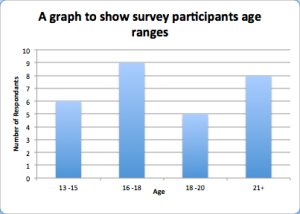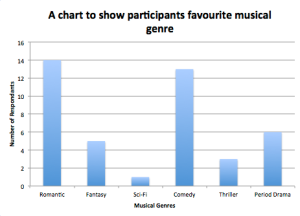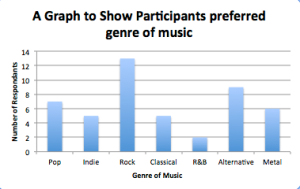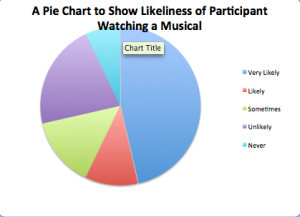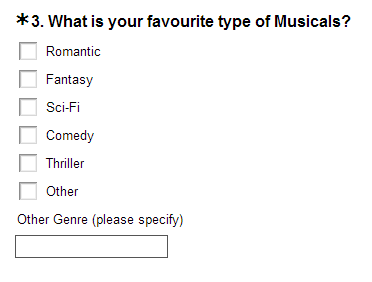I am researching into musical productions to find out what people want to see in musical productions. I have participated in some secondary research, using the website IMDB.com. Here are my findings.
1: The film ‘Camelot’ appeals to males aged under eighteen years of age. This film has the general theme of ‘royalty’, with the storyline based around the marriage of England’s King Arthur. This film mostly appeals to males under 18 because of all of the action that takes place in the film.
2: Sleeping Beauty is aimed at the females aged three to ten years old. It is a fantasy film, with a princess in whom is cursed by an evil witch which results in a prince fighting the evil witch to save her. This plot line appeals to this particular target audience of 3-10 year old females because that is the age they are into Princesses, so they are interested in it.
3: The musical production film of ‘Rent’ mostly appeals to the females that are under eighteen years old. The theme of the musical is romance, and is a rock opera illustrating the story of bohemian people struggling in the modern-day New York. The target audience for this film is females under 18 because the theme is romance.
4: The Prince of Egypt is film that appeals to females under eighteen. The theme of the film is an adventure-romance, an Egyptian Prince learns of his identity as a Hebrew and the deliverer of his people. The target audience is females under 18 because the film is animated and the theme is romance.
5: The musical production ‘Sweeney Todd’ mostly appeals to females under 18. The theme is of horror, with the storyline of Benjamin Barker, aka Sweeney Todd who sets up a barber shop down in London which is the basis for a sinister partnership with his fellow tenant. This appeals to females under 18 because it’s not just a horror, because there is a love story integrated into it.
6: Grease is a musical production appealing to females aged 45+. The theme is romance, with the storyline of a good girl Sandy and greaser Danny fell in love over the summer. But then they unexpectedly discover they are in the same school. The target audience is females aged 45+ because it was filmed while they were growing up.
7: The Lion King is targeted at females under 18, with the storyline of Simba being born, his father Mufasa dying, and Simba claims his rightful position. The target market is females under 18 because it’s about family and emotion.
8: Singing in The Rain is a musical production aimed at males and females under 18. The storyline is in 1927 Dan Lockwood becomes a famous actor in his friends company and falls in love with an actress. The target audience is males and females under 18 because it’s a musical with the theme of romance.
9: Hercules is a film with the viewers being females under 18, with the storyline of Hercules being turned into a half-mortal and he can only return to Mount Olympus then he becomes a true hero. The target audience is females under 18 because it is an animated musical with a bit of romance, which is what appeals to that specific target audience.
10: The Corpse Bride has the most viewers being males and females under 18, with the theme of fantasy-animation. The storyline is about a shy groom practicing his wedding vows in the presence of a dead woman, she rises from the grave thinking he has married her. This particular film appeals to both genders aged under eighteen because of the romantic storyline.
The musical production film of ‘Rent’, filmed in the year of 2005, directed by Chris Columbus, and screenplay written by Stephen Chbosky, received 6.8 star ratings out of 10 from users on the website IMDB, 5.8 out of 10 on RottenTomatoes, and also 7.4 out of 10 on Metacritic. These ratings from the websites users are fairly average – above average, with the vast majority of the votes coming from females under eighteen years of age, which is the films target audience. I found this quantitative data out from IMDb, RottenTomatoes and Metacritic, which are all fairly reliable media reviewing sites. I checked the same information on all three sites to ensure that my findings were reliable.

